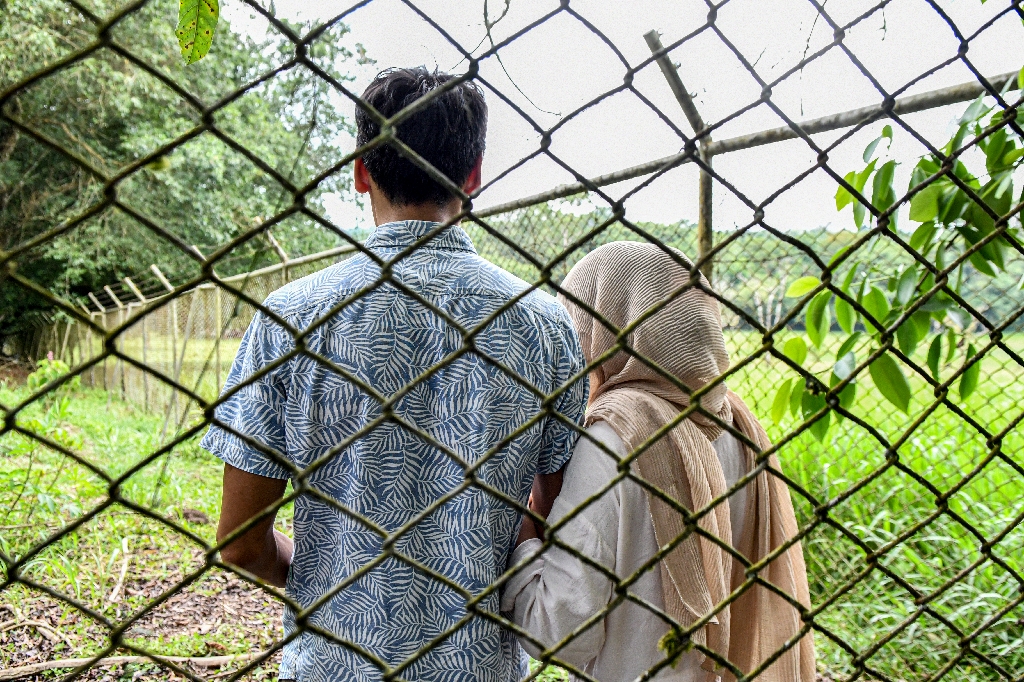Grand Island (United States) (AFP) – Israel Gomez Estrada, like thousands of other Cubans and millions more immigrants from around the world, left his home and family in search of a better life in the United States.
Now he is legally settled in Grand Island, Nebraska — a small city with a population of 50,000, and one Cuban restaurant. Tornadoes are frequent and winters can be harsh.
“Some of my friends have suggested that I move to another state, but I’m not leaving,” Gomez Estrada, 46, told AFP recently.
In March, he received a coveted green card, entitling him to work. Cubans can apply for one just a year after setting foot on American soil, while other immigrants must typically wait years before they can do so.
Despite difficulty with English, he quickly found a job in a food processing plant. He hopes to soon be joined by his wife and children.
Immigrants come to America, “with the aim of succeeding, and with a dream,” he said. “For us, it’s not difficult, because we know how to work hard.” Nebraska is short of labor, so immigration is a solution for employers.
– Snow – Before taking the plunge, Gomez Estrada said he had consulted online job offers from Cuba and spotted “lots of opportunities.” “I decided to leave my country, my family, a very difficult situation, because my father has a prostate condition and the medicine doesn’t exist in my country,” he said.
Gomez Estrada flicked through pictures on his phone to show his parents, his wife, his teenage children, and the parties he has missed since he left home. Because of his green card, he is now allowed to visit them in Cuba, but the plane ticket is expensive.
On the coffee table in front of him sits a cup painted with the colors of his island, filled with thick, sweet Cuban coffee. He now lives in a small one-bedroom apartment at the end of a long white wooden house which has been divided into several flats, where other Cubans live.
The apartment holds the promise of a new life for Gomez Estrada after a “very difficult” journey: To get to the US, he said he spent 13 days crossing the hellish jungles and rivers of Central America. He moved to Nebraska on the advice of a Cuban friend who lived in the city. But his friend had to move soon after his arrival, leaving him “in the snow, without knowing anyone.”
Gomez Estrada had always dreamed of seeing snowflakes, and the first time he did so, “it was wonderful,” he said. “I never thought it would be so beautiful.”
– ‘So kind’ – He found support from the congregation of the local Destiny Church, a building made from corrugated iron painted grey and orange, perched on the side of a road.
He was offered accommodation for several months and even a car, saving him the seven-kilometer (4.3-mile) walk to the grocery store.
Tim Rust, the church’s pastor, remembers meeting Gomez Estrada for the first time. “He was here in the country, wanted to work legally, could not,” he told AFP.
Because the two men couldn’t speak the same language, they initially communicated by translating phrases on a cell phone. “I didn’t notice a lot of racism when he came into the church,” Rust said. “He was well accepted, and people loved him.”
“Grand Island is open to the immigrants,” he said. “We have some people maybe don’t like it, and they don’t understand a lot of things,” he added. “But as a general rule, I think that the employers here and the people have a good attitude towards immigrants.”
Gomez Estrada says he has not experienced any racism since his arrival.
The subject of immigration is a sensitive one, especially in the middle of an election campaign. Two-thirds of the residents of Grand Island County voted for then-president Donald Trump in 2020. He lost to Democrat Joe Biden, but is seeking a rematch in November’s election.
Biden’s policy “favors us, the immigrants,” Gomez Estrada said, adding it was “positive” that Trump wants “people who come to this country to come with the intention of working and contributing.”
© 2024 AFP




